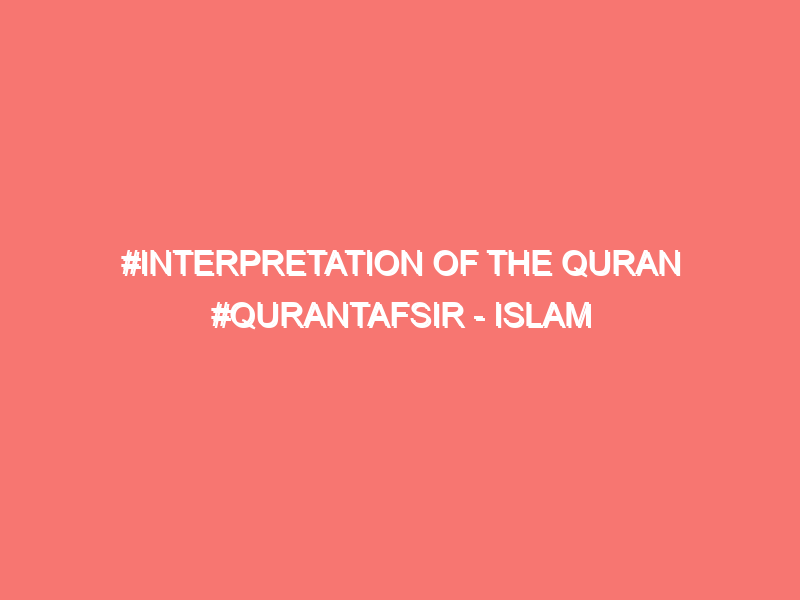Interpretation of the Quran
The Arabic word Tafsir is derived from Fasara which means to explain, to open, to unveil, or to discover something hidden. In Islamic terminology, Tafsir means interpretation of the Holy Quran.
Tafsir consists of explaining the difficult words and phrases including the grammatical construction of the sentences, purpose of revelations, unique features of the Holy Quran, examples, events, and oaths quoted by the Holy Quran, commands relating to the obligatory, permitted, and forbidden things and fundamental beliefs.
The best Tafsir of a verse of the Quran is usually given in the Quran itself for whatever is stated briefly or merely hinted at, in one place, will be found expanded and fully explained elsewhere in it. For example, verse 1 of Surah Maidah says: “… Lawful unto you (for food) are all four-footed animals with the exceptions named….. “. In verse 3 of the same surah, the exceptions mentioned in the earlier verse are given in detail.
Read More:
Similarly, there are some commands which have been superseded by subsequent commands, for example, the command; “O ye who believe! Approach not prayers with a mind befogged.” (4: 43) is superseded by a Subsequent command which bans the use of wine completely. (5: 90)
In such cases, it is very important for the interpreter of the Quran to know the verses which had been overtaken and which had overtaken them to explain the teachings of the Quran on a particular issue In the Holy Quran, there are Ayat whose meaning is manifest and decisive and which form the basis of the book, for example, commands relating to the fundamental principles of religion i.e., Unity of Allah, Prayers, Prophethood, Revealed Books, Angels, Day of Judgement, permitted and forbidden things, as well as those Ayat whose meaning, is not clear and which are beyond human understanding, for example, the Personality of Allah, Life after Death, etc.
Thus it can be said that there are two kinds of verses in the Quran, namely, the decisive and allegorical – the latter being those which can have different interpretations.
Read More:
‣ Characteristics Of The Quran
The important principle to be borne in mind in the interpretation of the Quran is that it should not be in conflict with another passage and more especially with the basic principles laid down in the decisive verses.
The Quran also takes oaths of many things for example olives, figs, heaven, stars, winds, time, etc. Explanation of the purpose of these oaths also falls within the scope of Tafsir.
Tafsir is either based upon the traditions of the Holy Prophet, the opinion of his companions and successors of the companions, or logical reasoning. The second kind of Tafsir is only approved if it is not in conflict with the Quran and Sunnah.
